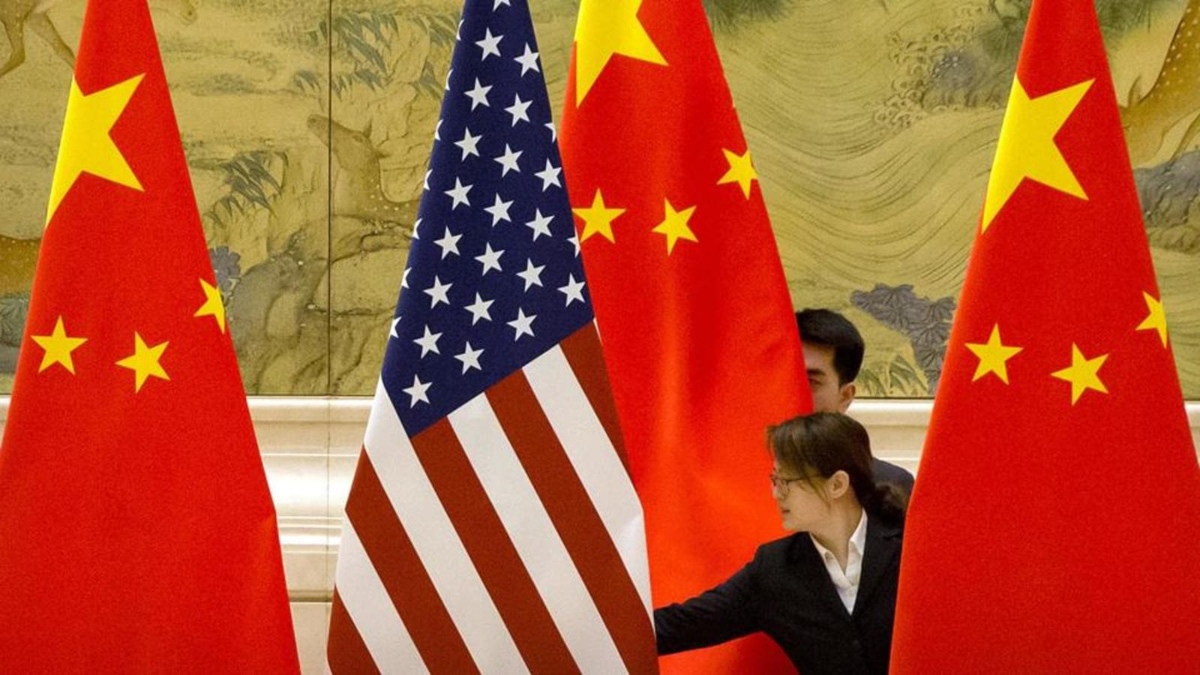Geopolitical conflict amongst the oil-rich countries of West Asia and the U.S. is one of the most complex and dynamic situations in the world. The recent war with the Taliban, the killing of Saddam Hussain, assassination of Maj. Gen. Qassim Soleimani of Iran’s Islamic Revolutionary Guard Corps by an airstrike conspired by the U.S. government has led to various implications on trade, economics, foreign relations including a hike in gold prices, unstable oil prices, maritime security and most frightening the awful death of several civilians.
The Persian Gulf countries including Iran, Iraq, Kuwait, Saudi Arabia, UAE, Oman and Qatar share common passage for seaborne traffic. The strait of Hormuz, a channel situated between the borders of Oman and Iran, is one of the significant waterways that link crude oil producers in the Middle East with the rest of the world. It bears approximately 30% of the world’s seaborne oil traffic.
These countries have a long history wherein they have shared friendly ties and had been at loggerheads with each other. One of the reasons for such restrained relations could be attributed to hunger to dominate the neighbouring oil-rich country or to become the supreme power. Having said that, the interference by the U.S. or the presence of the U.S. Army in Iraq, Afghanistan and Syria had also played a significant role in increasing the tension.
Iran was also a close ally of the U.S. until 1979 when the Iranian revolution happened and Shiite led Islamic group overthrew Shah Mohammad Reza. The new group in power in Iran kept American Embassy staff hostage in Tehran for around 445 days, which further deteriorated the relations between U.S. and Iran. Further tensions grew between them because of other events including Iran building its nuclear weapon base and the U.S. becoming more friendly with other countries of the Middle East.
Once again a terrible situation has arisen in Afghanistan because of the alleged reckless foreign policy by the U.S. which demands the international community to ensure world peace, the safety of people, maritime security etc.
What could happen if every other country becomes destabilize? The unnecessary airstrikes by the U.S. now and then could lead to severe retaliation. Such acts of aggression amount to a breach of security and sovereignty.
Right after President Ashraf Ghani absconded from Afghanistan; the Taliban expressed their intention that they would not want U.S. troops in their territory and demanded transfer of power to avoid bloodshed. The entire transition of power looked like a cakewalk as no resistance was witnessed from the Afghan military. It is beyond a reasonable man’s understanding that how 20 years of training of Afghan military by the U.S. military mingled in the soil in seconds.
Surprisingly, some press conferences were held wherein Talibanis were seen occupying President’s office along with some of Afghanistan’s government officials, supposedly, for the transfer of power.
On the contrary, the Afghan citizens who have been protesting against the government were seen panicking at the airport. Some devastating videos of people falling from the aeroplane were also aired. These protestors have raised concern over the increasing exploitation of women and children by the Taliban.
The larger concern is the broader geopolitical conflict between the U.S. on one side and countries like Iran, Iraq, Afghanistan, Pakistan, Russia, and China on the other side. So far, India’s stance has not been pro-Taliban but pro-Afghans because of our history with them including the involvement of the Taliban in the Indian Airlines Flight 814 hijacking.
Having said that, India has not declared the Taliban as a Terrorist organization so far, neither has the U.S. The U.S. recognizes the Taliban as an insurgency, a revolutionary group, instead of a terrorist organization due to political reasons.
India has often expressed its concern over the violation of fundamental rights of Afghans and has requested the world community as well as the security council to ensure an immediate cessation of violence and address humanitarian and security issues. India’s ambassador to the UN, TN Tirumurti also highlighted the concern over the ongoing development projects in Afghanistan provinces in power, water, road, healthcare etc.
Russia, China and Pakistan seem to have made their stance clear and showed their willingness to involve in talks with the Taliban. While the whole debate has now shifted towards the issue of recognition or non-recognition of Taliban as a legal government, the larger concern of interference by the so-called superpowers in the territory of other countries in the wake of fighting terrorism needs utmost attention.
Also, the fact that how so many arms and ammunition are being produced and sold by the super powers to these countries which in turn is used for terrorism. Why are such discussions not happening in UN?
Given the situation now, time will tell whether U.S. will continue to get cooperation from Iraq following the chaotic and severe situation created by the U.S. in Afghanistan? Iran may also be able to influence Iraq to push the U.S. troops out of Iraq.
The US has been instrumental in destabilizing Iraq and Iran as well. The assassination of Qassim Soleimani in February 2020 by the US led to severe criticism and chaos. Similarly, during the sudden evacuation of US troops from Afghanistan, people from several other countries living in Afghanistan were exposed to the likelihood of injury or maybe death.
Isn’t it a reckless foreign policy of the U.S. led government, which have left the whole region in chaos? The incessant airstrikes, bombings have left Afghanistan into a cemetery.
The entire situation highlights the inability of the UN or UNSC in maintaining international peace and security and finding diplomatic solutions.
The heightened tension in the region would also have repercussions for India. India is exposed to several risks including security issues from Pakistan since it is believed that Pakistan might infiltrate into Kashmir with the Taliban’s support. The ever-increasing challenge of accommodating refugees is another challenge that needs global attention.
India is not a signatory to the 1951 Convention on Refugees or the 1967 Protocol Relating to the Status of Refugees unlike other nations such as the US, EU. Although India does not have an official refugee policy, it has given refuge to many Afghans [during the Soviet-Afghan war (1979-1989), the Afghan Civil War (1992-96), during the Taliban rule (1996-2001) and recent Taliban rule (2021).
According to UNHRC data for 2020, the total number of refugees from Afghanistan globally is roughly 28 lakh of which India has the 12th highest number of Afghan refugees. Currently, the exact figure is not clear but as per few media reports, the Afghan diaspora in India is close to 8,00,000 registered refugees and at least two million more who are unregistered. Recently, a lot of media reports and videos have circulated wherein Afghans living in India for years have expressed their concerns of economic difficulties, not finding adequate jobs, no promising future and unstable life.
Many Hindu and Sikh Afghans have also been evacuated from Afghanistan, which is seen as a political move to gain Hindu and Sikh votes. Many believe that the controversial Citizenship Amendment Act (CAA) makes it impossible for Afghan refugees to acquire Indian citizenship because, under the law, Citizenship would be expedited for Hindus, Christians, Sikhs etc. only from neighbouring countries like Afghanistan, Pakistan and Bangladesh.
Another concern is the investment India has made ininfrastructure projects in Afghanistan. The Afgan Parliament house was financially supported by India for $90 million, there are numerous other projects including irrigation, dams, highway and building projects in total costing approximately $3 billion, India happens to be the largest regional donors to the country.
A stable West Asia is important for our energy (oil and gas) needs. With Indian investments in Afghanistan as well as in Iran such as the Chahbahar port and Farzad B gas field, it would become important to balance our strategic autonomy with the increased U.S. threat of sanctions. The key lies in maintaining our principled stand of non-intervention in internal affairs of other nations, along with looking for a peaceful settlement of dispute. The time has come to meticulously watch every developed nation’s step























